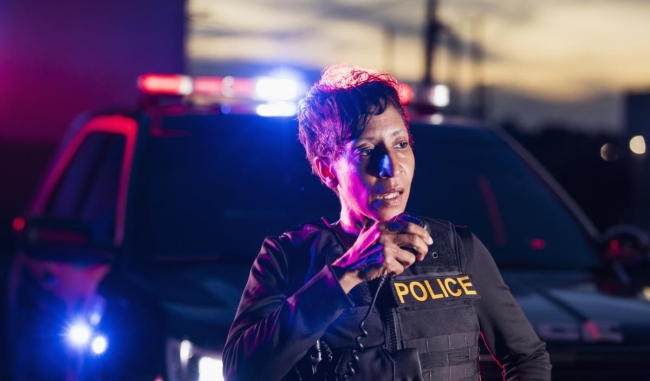You have /5 articles left.
Sign up for a free account or log in.

iStock.com/kali9
In the wake of national protests against police violence and anti-Black racism, several colleges are reviewing or planning to alter their law enforcement or criminal justice curricula.
“What sparked the review?” said Henry Morris, vice president of diversity and inclusion at Minnesota State University at Mankato.
At Minnesota State specifically, Morris said the administration was hearing from students about their thoughts on the killing of George Floyd and the subsequent unrest. The university’s president, Richard Davenport, Morris said, began a conversation about how the college could be part of a solution.
The Minnesota State University system, of which Mankato is the largest university, trains 80 percent of police officers in the state. The college has programs in law enforcement, criminal justice and corrections.
The college has begun several “listening sessions” to hear from students, faculty and area law enforcement about what could be changed in the program. Some ideas include a new focus on the history of law enforcement, training on stress management and cultural competencies, and internships in diverse communities, Morris said.
The college is currently taking applications for a task force and hoping to include academic experts, community members and police officers themselves.
“Normally our program review is much narrower,” Morris said. “How do we make sure we hear as many voices as possible in this review?”
The task force will be aiming to present recommendations to the president by Oct. 1, to carry out changes by the fall of 2021.
“It is our goal to be comprehensive,” Morris said. “From my perspective, everything’s on the table for what we do.”
At Champlain College, Tony Perriello, director of the criminal justice program, is leading the push to change the law enforcement curriculum.
“Our program is in many ways already progressive,” he said, noting that students are required to take courses in social justice and the college offers courses in restorative justice and prisoner rights. The program also runs an internship where students can teach legal research methods to inmates in Vermont prisons.
But Perriello said he would like to see both new courses added and existing courses altered.
“An antiracist curriculum is called for at this moment, and I think it would necessarily consist of new courses that specifically address the issue of race within the criminal justice system, including the racist history of the system, the fact that racism is systemic,” he said. “There should be courses covering efforts at reform and how those efforts have failed.”
Perriello said he would like to similarly embed content about race into every course in the criminal justice program.
The new courses and changes could be carried out by next fall, he said.
Additionally, Perriello said he believes partnering with law enforcement is crucial for the change, so Champlain College has submitted a proposal to host a police academy on site. A commuter-based model in Vermont’s most diverse county could attract a more diverse set of applicants, Perriello said. The college would also, if approved, be changing the academy curriculum to emphasize de-escalation, community policing and a collegial training approach (as opposed to the “paramilitary” approach the academy currently employs, Perriello said).
Currently, Champlain students who would like to attend the state’s existing police academy can go their senior year and receive academic credit.
Other colleges that are reviewing their programs include the Virginia and California community college systems.
Strengthening Ties With Police
Abolishing or defunding police departments -- by transferring their budgets to social welfare programs and replacing officers in many of their duties with social workers or medical staff -- is an idea that is gaining conversational airtime, if not outright support. The problems with policing in America such as racism and brutality, advocates say, are too entrenched to ever be reformed away.
Those ideas seem to have some particular hold among college students. On dozens of campuses, students have asked their universities to cut ties with local police altogether or disband their campus departments.
Programs at Champlain and Mankato are instead choosing to strengthen some of their ties with police departments or bring officers to the table to discuss change.
“While I understand some of the arguments that folks who want to abolish the police are advancing,” Perriello said, “we do not yet live in a society where police are not necessary. We live in a violent society.”
In a world with decreased crime, the role of police might change, he said, but officers would still be necessary.
“People of color are also more often the victims of violent crime, and so are the poor,” he said. “I believe we still have an obligation to educate our students to be public safety professionals, whatever that role is.”
Morris said he also believes there will always be some form of policing.
“We need to figure out how we move to the next iteration of what community policing looks like,” he said.




